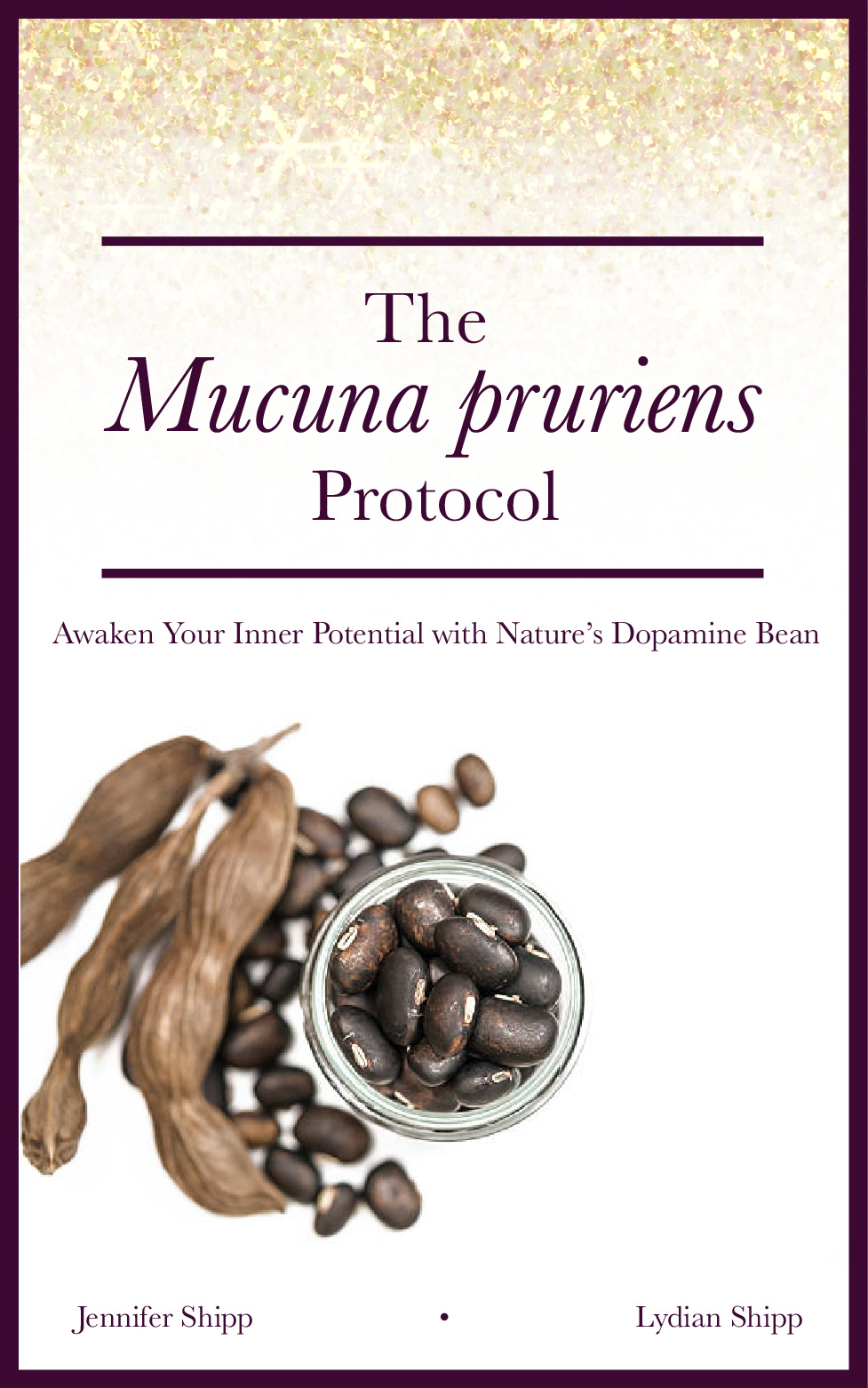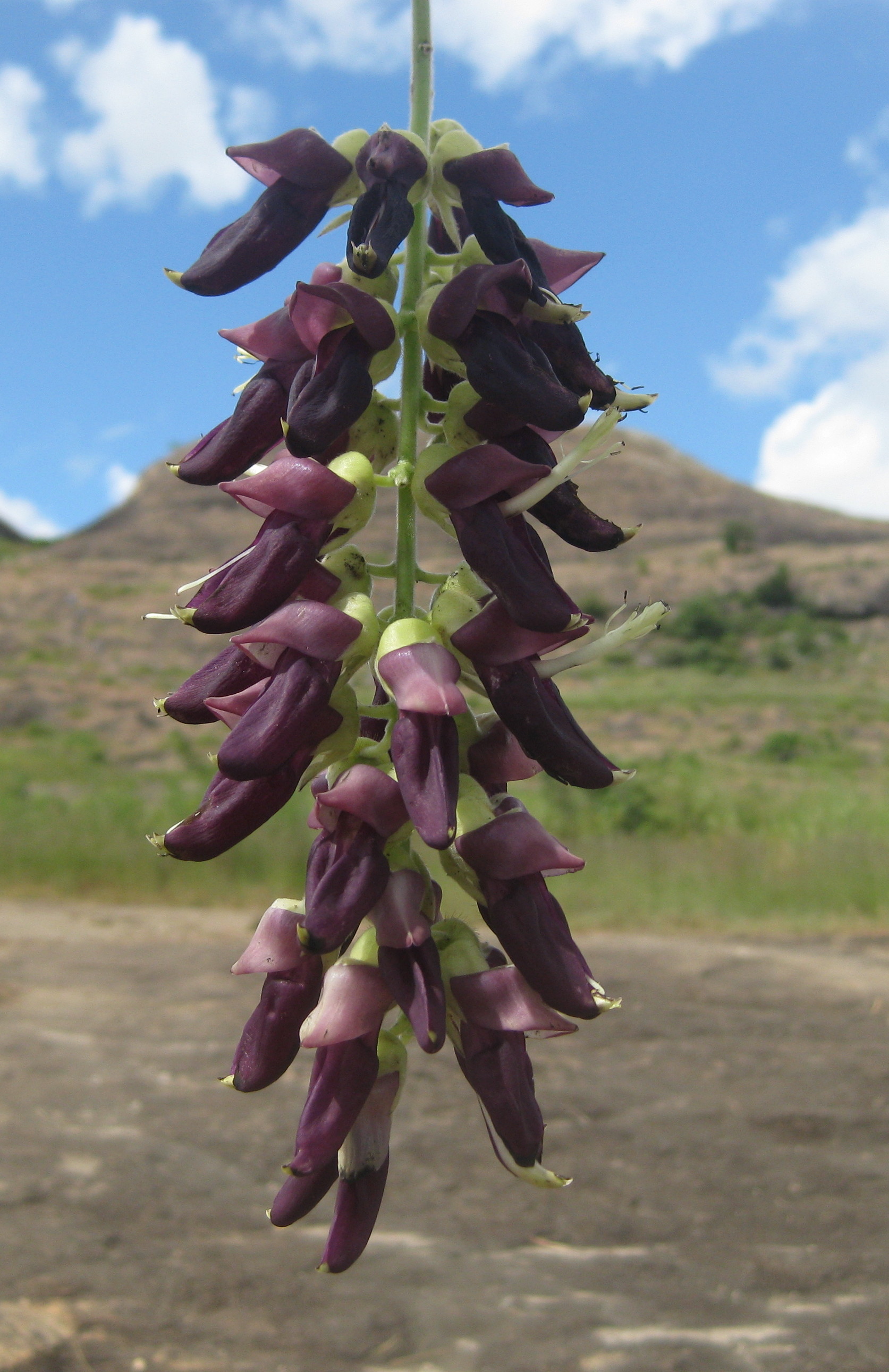 Mucuna Miracle Bean: Natural Cure for ADHD
Mucuna Miracle Bean: Natural Cure for ADHD
Many parents contact us because they’re frustrated with the side effects of ADHD medications and the fact that these medications rarely work at home (during after-school hours) to help children focus and balance their emotions. As such, we get a lot of questions from health coaching clients about whether or not thera are herbal cures for ADHD that exist. The fact is, there is an excellent herbal cure for ADHD that works very reliably: Mucuna pruriens.
Few parents know about Mucuna and they’re mystified about this natural plant-medicine for ADHD once they set out to do their own research into Mucuna. A Google search inevitably leads parents into the labyrinth of “L-Dopa”, a topic that has been thoroughly muddled by the fact that Big Pharma named a synthetic drug “Levodopa / L-Dopa”. The natural L-Dopa produced by Mucuna pruriens and other food-plants like fava beans is not chemically similar in any way to the L-Dopa that is sold at pharmacies.
Disentangling information about natural L-Dopa from synthetic L-Dopa is a project that can only be done by someone with a bit of free time on their hands or a degree in biology or medicine. And then, because natural, biologically produced L-Dopa performs many functions in the body, it takes time for a person (like me) to write about Mucuna pruriens and its natural L-Dopa content in terms of each disease / symptom that it can treat. Nonetheless, if you’re trying to overcome ADHD naturally using herbs and supplements to get away from toxic pharmaceuticals that damage family relationships, you need to understand what Mucuna pruriens is and how it works in the body.
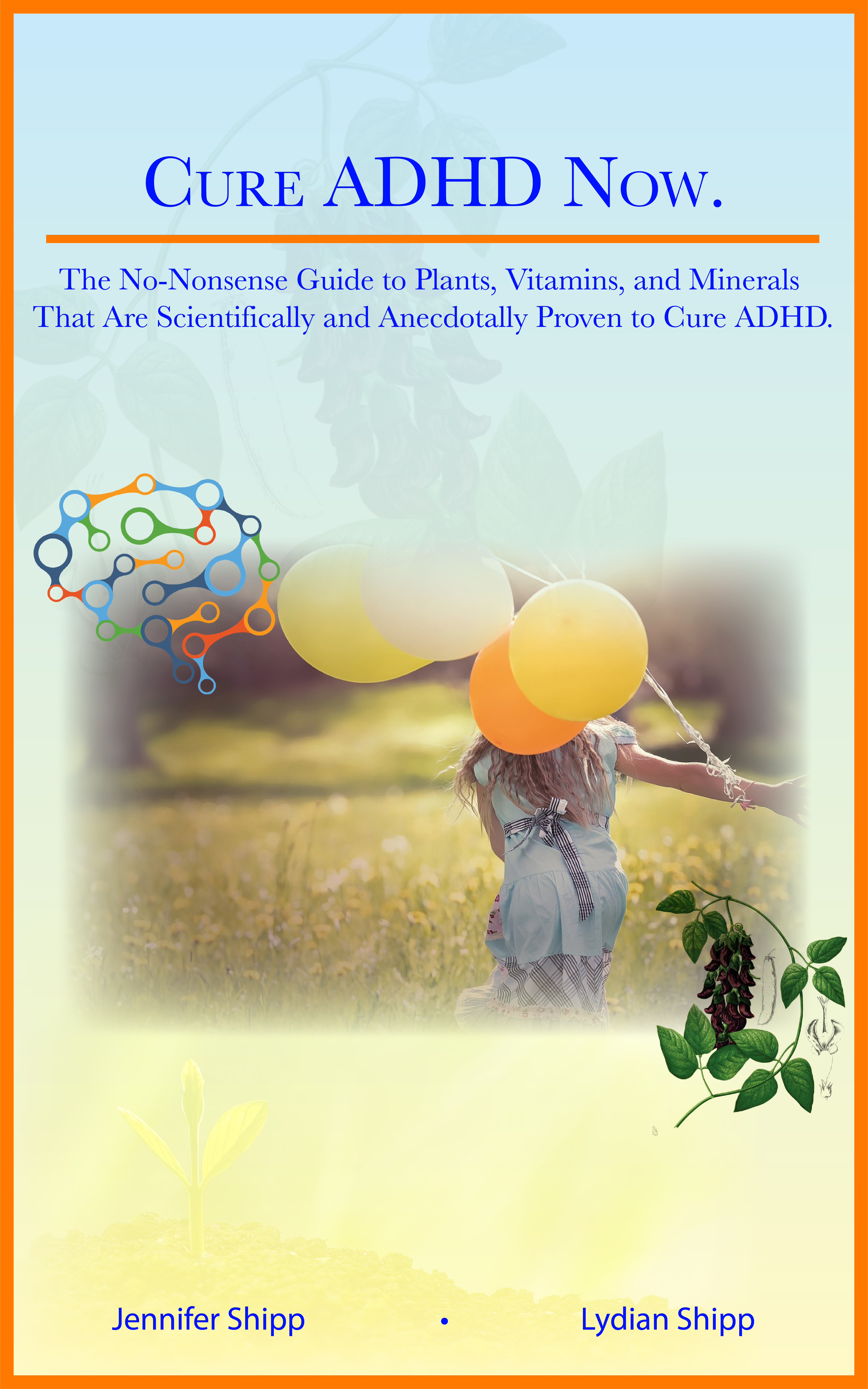
Click here to buy Cure ADHD Now: The No-Nonsense Guide to Plants, Vitamins, and Minerals That Are Scientifically and Anecdotally Proven to Cure ADHD.
What is Mucuna pruriens?
Mucuna pruriens is the Latin botanical name for the velvet bean, a food-plant that is consumed as a staple in some communities in Central America and Asia. Mucuna is used regularly in Latin American countries as a coffee alternative (in fact, some communities call Mucuna “Nescafe”). In Asia, it is used in Ayurvedic medicine, where it is also sometimes referred to as Kapikachhu.Mucuna contains higher quantities of L-Dopa than any other type of bean. Fava beans, however, are another common type of bean that contain L-Dopa in noticeable quantities. The L-Dopa found in fava beans, Mucuna beans, and other bean plants is natural L-Dopa, a substance that is chemically distinct from the L-Dopa that’s produced by Big Pharma as a drug for Parkinson’s treatment.
 Click here to buy Mucuna Pruriens Capsules.
Click here to buy Mucuna Pruriens Capsules.
Vitamins and Minerals That Help Convert L-Dopa into Dopamine in the Brain
In order for the L-Dopa in Mucuna pruriens to convert into dopamine in the brain, certain vitamins and minerals must be present in the body in sufficient quantities for the conversion to take place. These vitamins include:- Vitamin B6 - 25 mg per day (child); 100 mg per day (adult)
- Magnesium - 200-300 mg per day (child), 300-600 mg per day (adult)
- Zinc - 20 mg per day (child); 50 mg per day (adult)
In addition to the above vitamins and minerals for ADHD, research has shown that both adults and children respond to treatment with the following nutrients as part of a protocol that works very well to overcome hyperactivity and lack of focus:
- Fat-soluble vitamins and Omega 3’s / Cod Liver Oil - 1 teaspoon per day in both children; 1 Tablespoon per day in adults
Mucuna pruriens: Other Medicinal Benefits
We often recommend Mucuna pruriens to ADHD kids and adults because this bean has a lot to offer in terms of medicinal benefits. These benefits include:-
- The natural L-Dopa in Mucuna has been shown to have anti-tumor effects. Doctors have noted anecdotally that patients with melanoma have a reduction in tumor size when taking L-Dopa / Mucuna.
- L-Dopa is a very gentle anti-parasitic medicine which means that it can help kids overcome a parasite infection that can disrupt sleep and cause poor nutrient absorption.
- Natural L-Dopa is an anti-depressant as well as an anti-anxiety medicine.
- Natural L-Dopa can “immunize” children against addiction. In other words, a child who is regularly taking Mucuna pruriens / natural L-Dopa is unlikely to find methamphetamines or other drugs that cause a strong a dopamine release to be pleasurable.
- The natural L-Dopa in Mucuna can boost fertility and libido in adult men. In women, natural L-Dopa also boosts fertility but Mucuna and natural L-Dopa can act as a mild contraceptive when it is taken daily during the week prior to and after conception. A woman who wishes to boost fertility to using L-Dopa should take Mucuna up until the end of their period and then stop taking it while trying to conceive.
- Mucuna pruriens is a natural anti-Parkinson’s medicine.
 Click here to buy Vitamin B Complex Liquid Drops.
Click here to buy Vitamin B Complex Liquid Drops.
What is the difference between synthetic, pharmaceutical Levodopa / L-Dopa and the Levodopa / L-Dopa in Mucuna pruriens?
Anyone who attempts to research Mucuna pruriens and natural L-Dopa online will quickly find that the surface information is muddled and extremely confusing. Less confusing, however, are certain facts about pharmaceuticals in general, so I’ll talk about these facts to give readers a better understanding of how the natural L-Dopa in Mucuna pruriens is different from the synthetic L-Dopa in the pharmaceutical agent known as “Levodopa”, sometimes shortened to just “L-Dopa”. Researching Cinchona officinalis and quinine presents similar difficulties. Quinine is demonized as “dangerous” though it hasn’t really earned that reputation in terms of side effects of adverse effects. Rather, it is dangerous to Big Pharma as one of the medicines that is always a threat to Big Profits through its ability to cure many diseases including malaria and cancer (two of the biggest industries in healthcare).
Click here to schedule a health coaching session with us.
In order to make big profits, Big Pharma must patent their medications and surgical devices (surgeries themselves are not patentable). It isn’t legal for a corporation to try to patent a naturally occurring thing. If a substance, molecule, plant, or “thing” occurs naturally in the world, it cannot be patented. Patents give a corporation the right to market a product exclusively for about 7 years. Then, at the end of the patentable time frame, the synthetic item can be reproduced by other corporations and sold competitively in the marketplace. So Big Pharma and other corporations often produce an item, like a drug with the idea that within 7 years, they must produce a new “derivative” of the same thing that they’ll then market to consumers as something that’s “better” than what they produced in the past. So, a naturally occurring molecule like the L-Dopa in Mucuna pruriens, isn’t patentable unless Big Pharma takes it into the laboratory and modifies the molecule just a little bit. No matter what, in order for a molecule like L-Dopa to be profitable and patentable as a prescription medicine, Big Pharma has to make some kind of minor change in the molecule. And this change must result in a “synthetic” final product that doesn’t occur anywhere in nature. Thus the designation “synthetic”. Quinine is a good example of a natural substance with a very respectable safety profile and an excellent reputation for treating infections that was replaced later by chloroquine and hydroxychloroquine. Quinine is much safer than either of these two “later generation” drugs though the whole plant, Cinchona officinalis, is safer still and also effective as a treatment for a number of health issues. In order to create a “brand” around a pharmaceutical product, Big Pharma must create a product that’s synthetic first. They send out scientists into jungles and forests and to indigenous communities where traditional medicine is still being used to seek out and find “lead agents” or natural medicinal substances that are already working to cure diseases so that lab scientists can take those natural substances and find patentable versions of molecules that work similarly, but that do not cure the disease in question (Goldman-Sachs went on record saying that “curing disease is not a profitable business model”.) The “minor” changes that the lab scientists make to the naturally-occurring molecules that become synthetic “drugs” often cause damage inside the human body. An excellent example is vitamin A. Most people know that our bodies need vitamins. In fact, the definition of a vitamin is that it is a substance that our bodies need in order to survive and function properly. Vitamins have a particular molecular shape and a very specific chemical make-up that makes it possible for them to work with the human body in a healthy way. If the molecular make-up or structure of a vitamin is modified such that it no longer has a natural shape or chemical make-up, it becomes damaging to the body. The body may initially be fooled into thinking that this vitamin is the real thing, but if the vitamin has been synthetically modified, it will eventually cause damage to the body. Thus, the acne medication known as Accutane in this example, can carry serious health effects, to the point where female patients who are prescribed this medication must sign a waiver to not try and conceive while they’re on the medication due to the severe birth defects that can occur if a woman takes Accutane while pregnant. In contrast, the naturally occurring form of vitamin A, like beta-carotene, will not cause any kind of health problem in most cases, even if you take high doses (the body will simply flush out any excess carotene that you take/ingest; retinol, however, which is synthetically produced as well, can build up in the body and also cause issues). Despite the fact that this problem of synthetic, modified molecules in the body can cause damage, all of the medicines that are marketed through Big Pharma are synthetic. Some of them cause a lot of damage, some of them cause only a little bit of damage. In some cases, the damage becomes apparent immediately, but in other cases, it takes years to see the damage. It’s important to understand that in the early days of Big Pharma, synthetic, modified molecules made it possible for Big Pharma to regularize medicines, the dosing, and the proper schedule for taking each dose. And that still today, there are some situations wherein it makes sense to use synthetically modified molecules with medicinal effects. Methylene blue is one example of a synthetic drug that we recommend for treating ADHD, PANS, PANDAS, and OCD. But methylene blue was the first pharmaceutical ever developed by Big Pharma. This drug has a huge spectrum of action because it was created back in the days before Big Pharma was Big Pharma. It was created back when scientists were honestly trying to find synthetic molecules that would cure disease. Unfortunately, however, synthetic Levodopa / L-Dopa can cause a variety of bad side effects like impulsive behavior and a worsening of the very symptoms that it’s supposed to treat. In contrast, the natural Levodopa / L-Dopa in beans like Mucuna pruriens and fava beans does not cause these side effects. Indeed, the natural Levodopa / L-Dopa produced by the body via the natural biochemical pathways that start with L-Phenylalanine or L-Tyrosine, quells impulsivity and reduces ADHD symptoms. While the synthetic Levodopa sold as a prescription medication by Big Pharma eventually causes a breakdown of dopamine receptors, natural Levodopa in Mucuna actually promotes the healing of dopamine receptors that have been damaged.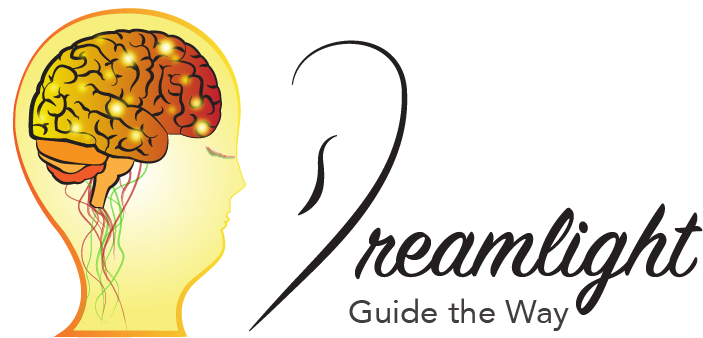
Click here to learn more about the DreamLight.app, a guided meditation and brain-entrainment tool for natural trauma-release.
You see, having adequate levels of dopamine in the brain is like being fully charged in regard to decision-making “fuel”. On the other hand, when a person is deficient in dopamine, they feel desperate. Biochemically, the feeling of desperation can be viewed as a dopamine deficiency. If you consume caffeine, methamphetamine, amphetamine, methylphenidate, dexmethylphenidate, or any other drug that pushes dopamine out of neurons into the synapse while your neurons are deficient in dopamine, you feel “wired” or “strung out” instead of feeling more awake, clearer headed, or better able to think. If you have enough dopamine in your neurons and you consume caffeine, methamphetamine, amphetamine, methylphenidate, dexmethylphenidate, or any other drug that forcefully pushes dopamine out of neurons into the synapse, you might feel more awake, but because your brain is fully charged on dopamine, the release of dopamine into the synapse by a substance like caffeine, meth, or Ritalin wouldn’t be regarded by your brain as a major event. A brain that has sufficient dopamine levels is constantly receiving dopamine “hits” from normal, everyday activities and engagement with the world. Unnatural dopamine hits, even those that come from “likes” on social media start to show their true colors to a brain that has enough natural dopamine because natural dopamine is a decision-making, discernment neurotransmitter. Its function in our brain is to notice rewards and punishments that happen to us as a result of our own behaviors and interactions with the world. A person who has sufficient dopamine levels is discerning and can notice that social media has limitations. A person who has sufficient dopamine levels eventually becomes bored with video games and gambling. This is why Mucuna pruriens is able to help people overcome addictions without itself being addictive. The bean recharges our natural L-Dopa levels so that dopamine can be manufactured on an as-needed basis. Extra L-Dopa can be discarded easily from the body. And once dopamine levels are adequately recharged for at least 5 months so that damaged dopamine receptors can heal under the influence of balanced levels of natural dopamine in the synaptic cleft, people develop the ability to make healthy decisions on the basis of real experience. In summary, a deficiency of dopamine leads to a cycle of desperation, impulsivity, and addictive and/or repetitive behaviors, that can only be halted by the presence of natural L-Dopa and a corresponding presence of dopamine that can be released on a regular basis from the neuron into the synapse.Is Mucuna pruriens addictive?
Many people are under the mistaken impression that dopamine is addictive or perhaps rather that dopamine hits are addictive. Actually, it’s not the dopamine hit itself that’s addictive. If dopamine is available in the brain on a regular, ongoing basis. Dopamine hits only become addictive when the brain is deficient in dopamine.Dopamine deficiency in the brain causes people to develop a sense of desperation for dopamine hits. But if you make sure that your brain and body have the necessary materials to make plenty of dopamine each day, you won’t develop a sense of desperation that leads to addictive or repetitive behaviors.
Drugs like methamphetamines can be addictive if a person take meth when they are deficient in dopamine. When a person has a mild dopamine deficiency in the brain, meth will cause a what the brain perceives to be a “massive” dopamine release into the synaptic cleft. Once that first dopamine hit happens, which is likely the release of a very normal amount of dopamine, the person feels desperate for another hit of dopamine. Often, people who are addicted to a substance like sugar, for example, they feel desperate for sugar (a dopamine hit) and can’t make a decision on their own behalf against eating sugar. Then after they indulge in the sugary treat, their brain suddenly has the dopamine decision-making fuel and they feel guilt because they know that the sugar is bad for them. Until an addict has plenty of natural L-Dopa and dopamine in their brain at all times, they won’t be able to overcome their addiction.
Supplementation with Mucuna pruriens and natural L-dopa can protect ADHD children from addiction. Though it takes about 5 months for the brain to regrow damaged dopamine receptors, children with ADHD who begin taking Mucuna pruriens with the other vitamins and minerals that support the conversion from L-Dopa to dopamine, are less likely to become addicted to video games, social media, smart phones, drugs, and even sugar.
Click here to subscribe to the Living Database!
How to Choose a Mucuna pruriens / L-Dopa Product to Treat ADHD Naturally
There are several natural L-Dopa products on the market to choose from. Personally, I prefer Mucuna products that contain the whole plant material particularly for the natural treatment of ADHD in kids. However, some adults with ADHD who have been addicted to amphetamines or other prescription drugs for more than a year should consider taking a natural L-Dopa product with a standardized L-Dopa content.The Mucuna pruriens Protocol: Overcome Dementia, Addiction, ADHD, Mood and Mental Health Disorders
Mucuna pruriens Dosing for ADHD
As a bean, Mucuna can be added to food and it generally isn’t necessary to “dose” it when it is used this way. It is, after all, a staple food like corn or wheat for whole communities in Central America. However, if you’re administering Mucuna to a child with ADHD, I recommend putting 1-2 tablespoons of honey in a small cup and mixing ½ to 1 tablespoon of Mucuna into the honey along with magnesium drops or powder (100-200 mg in kids twice daily; 200-300 mg in adults twice daily), zinc drops (10 mg in kids twice daily; 20 mg in adults twice daily), and vitamin B6 (25 mg daily in kids; 50-100 mg per day in adults once daily). The Mucuna should be administered 4 times daily. CBD can also be added to this honey mixture. Indeed, if you use a small condiment cup to mix Mucuna and these vitamins together, the child can self-administer the honey to themselves at lunchtime as a healthy boost.A child with ADHD should also receive 21 mg of iron once daily and one teaspoon of either Cod Liver Oil or an omega 3/omega 6 supplement.
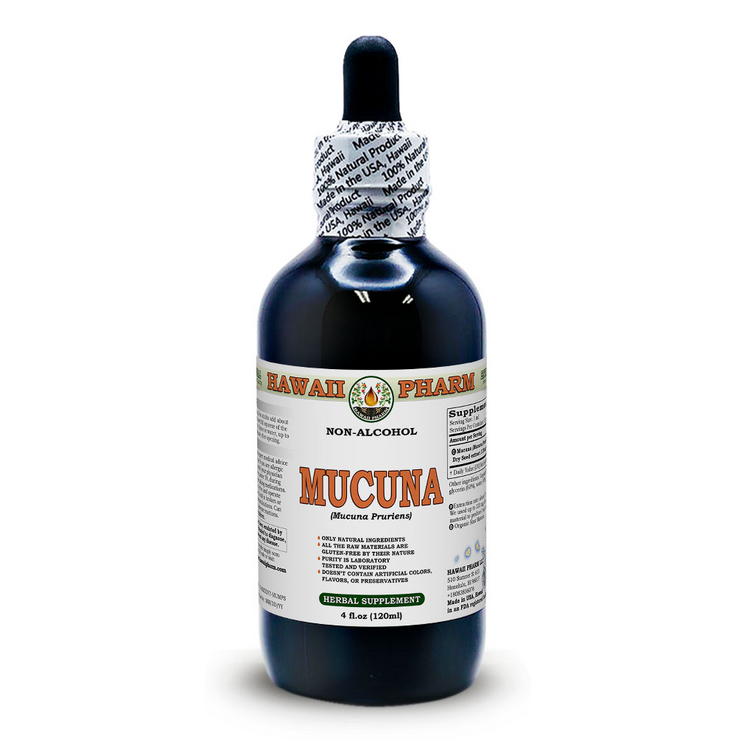
Click here to buy Hawaii Pharm's Mucuna pruriens tincture.
Adults can take capsules of Mucuna with vitamins. Natural treatment for adults with ADHD starts at 6000 mg daily of Mucuna taken in 4 divided doses (1500 mg each). Adults should also take a vitamin B6. Taking vitamin B complex that contains vitamin B6 in high enough doses is more nutritionally complete than taking just vitamin B6 for adults. I recommend a vitamin B-100 product for adults with ADHD along with magnesium (300-600 mg daily in divided doses), zinc (40 mg taken once per day or 20 mg twice daily), and iron (21-45 mg taken once per day).
Adults should also take 1 tablespoon of Cod Liver Oil daily or an omega 3 / omega 6 supplement.
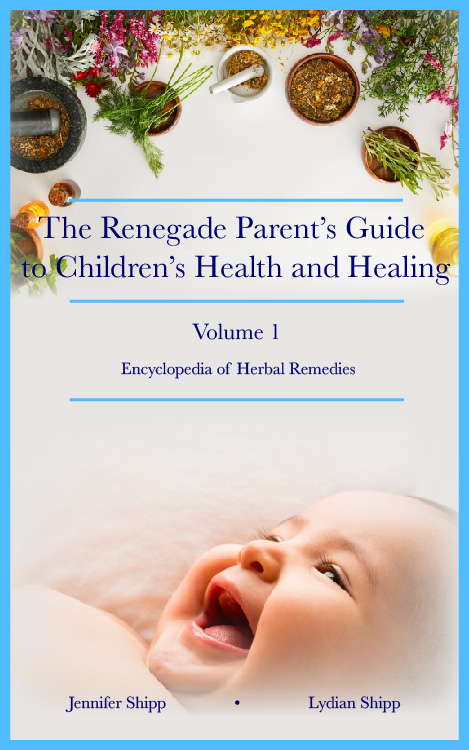
Click here to buy The Renegade Parent's Guide to Children's Health and Healing: Volume 1 - Encyclopedia of Herbal Remedies.
Resources:
Kamkaen, N. et al. (2022). Mucuna pruriens Seed Aqueous Extract Improved Neuroprotective and Acetylcholinesterase Inhibitory Effects Compared with Synthetic L-Dopa. Retrieved September 22, 2022 from https://pubmed.ncbi.nlm.nih.gov/35630617/


